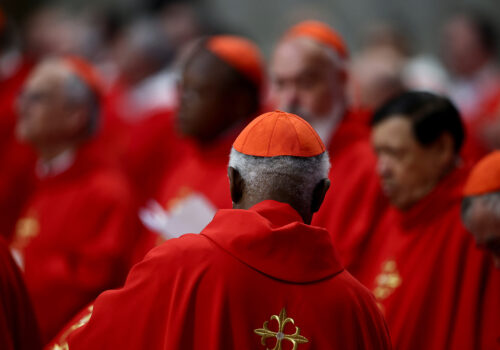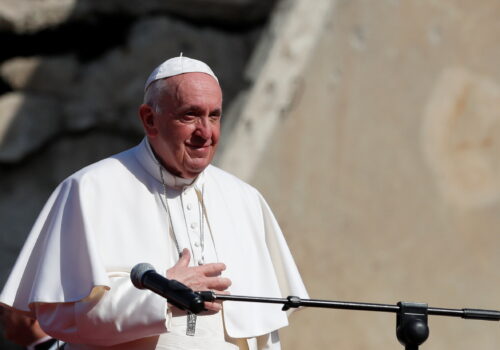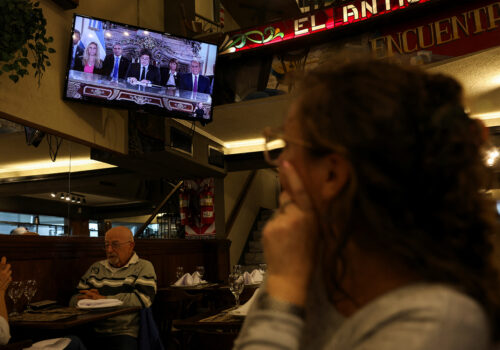Pope Leo XIV’s electors represented Catholics’ changing economic distribution
American Cardinal Robert Prevost has been elected as the 266th Pope and leader of the world’s 1.4 billion Catholics. His selection came from the largest and most diverse conclave in the Church’s history, heavily shaped by his predecessor, who appointed 80 percent of the 2025 cardinal electors. While many expected a pontiff from Asia or Africa to follow Pope Francis (the first non-European pope in over a millennium) the choice once again defied expectations. While the direction Pope Leo XIV will take the Church is unclear at this early stage, he’s unlikely to reverse Pope Francis’s push to elevate voices from the Global South.
Twelve years after his own surprise election, how much did Pope Francis actually succeed in reshaping the church’s leadership? Here’s one way to look at it.
To understand the Church’s shifting priorities amid an evolving Catholic demography, we compared the economic profiles of the cardinal electors who selected Pope Francis in 2013 and Pope Leo’s 2025 conclave. This time, around 32 percent of Cardinals in the conclave came from countries in the bottom half of world gross domestic product (GDP) per capita, a notable rise from around 22 percent in 2013. Under Francis’s pontificate, the profile of the “median cardinal elector” shifted towards lower GDP per capita nations by 12 percentage points. Still, the majority of electors hail from middle to higher-income countries, partly reflecting the geographic concentration of the world’s 1.4 billion Catholics.
This shift among the cardinal electors mirrors the broader trend: the Catholic Church’s growth, and thus its future, is increasingly in emerging economies. In Africa and Asia, the Catholic population has expanded faster than their overall population growth, while North America experiences slower growth and Europe a reversal. Pope Leo XIV will have to continue adjusting to the Church’s new demographic reality.
Israel Rosales is a consultant with the Atlantic Council GeoEconomics Center.

At the intersection of economics, finance, and foreign policy, the GeoEconomics Center is a translation hub with the goal of helping shape a better global economic future.
Further reading
Tue, May 6, 2025
The next pope may be African—or not. Either way, Africa is at the forefront of today’s Roman Catholic Church.
New Atlanticist By Alexander Tripp
An African pope is not a given in this conclave or the next, but African agency and leadership in the twenty-first-century church is.
Fri, Apr 25, 2025
Will Pope Francis’s Middle East legacy endure?
MENASource By Karim Mezran
The late Pope's final address on Easter Sunday was a capstone in a track record of advocacy for peace between the Israelis and Palestinians.
Wed, Apr 16, 2025
Four questions (and expert answers) about Argentina’s new $20 billion financial rescue
New Atlanticist By Martin Mühleisen, Jason Marczak
What exactly did the IMF agree to, and what is required of Argentina? Our experts dive into the deal and map what comes next.
Image: Mechelen, Belgium - November 4, 2016: Stained Glass window depicting Cardinal Mercier (1851 - 1926) and Belgian bishops, in the Cathedral of Mechelen, Belgium.


